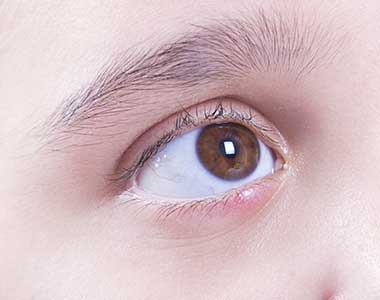Healthy Nutrition Means Healthy Growth!

We as moms always associate growth with healthy nutrition. And this is absolutely true, since a well-rounded and nutritious diet is indeed a very important factor that enhances your child’s growth, both in weight and in height!
Nutrients that contribute to healthy growth:
First and foremost Proteins!
Proteins are the building blocks of the body and help cell and tissue growth. Adequate high-quality protein in your child’s diet is absolutely essential to ensure proper growth and development.
How much does your child need?
- 4-6 years=24 grams/day
- 7-10 years=28 grams/day
What do we mean by high-quality proteins?
- A high quality protein means that it contains all the essential components (called essential amino acids) that make up a protein molecule. These essential amino acids cannot be synthesized by our bodies and thus we have to take them in the diet. High quality protein sources are normally of animal-origin such as meat, chicken, fish, eggs, milk and dairy products.
- In contrast, vegetable-origin proteins may lack one or 2 essential amino acid, and thus are classified as an incomplete. Examples include grains, legumes, nuts and vegetables. But the good news is that if you mix and match the plant sources, you will eventually have a complete protein, for example, lentils and rice-moujaddara, whole grain bread with chickpeas or beans…
To put the needs of kids into perspective, take a look at the content of proteins in some food sources:
- 60g of meat, chicken or fish=14g of proteins
- 1 Egg=7g of proteins
- 1 glass of milk=7-8g of proteins
- ½ cup of beans or lentils=7g of proteins
- ½ cup of rice or pasta or burghul=3g of proteins
Vitamins and minerals associated with healthy growth
All the vitamins and minerals are important for our children’s health and each perform as certain function in their bodies, but those portrayed below are the ones mostly associated with their healthy growth.
| Nutrient | Their Functions | Sources |
|---|---|---|
| Essential Fatty Acids | Aid in constituting both brain and body cells for healthy mental and physical development | Fortified milk, vegetable oils, fatty fish, nuts |
| Calcium | Build strong bones and supports the growth phase | Milk, cheese, yoghurt, labneh, laban |
| Vitamin D | Build strong bones and supports the growth phase | Sunshine, egg yolk, fatty fish, fortified milk such as NIDO STAR |
| Iron | Helps in both mental and physical development | Meat, legumes, fortified milk and cereals fortified with iron |
| Zinc | Essential for growth and cell reproduction and repair. | Meat, seafood, eggs, fortified milk, dairy products fortified breakfast cereals |
| Vitamin A | Promotes healthy growth and better eyesight | Orange and red colored- vegetables and fruits and green leafy vegetables, fortified milk |
| Vitamin E | Helps healthy growth of cells and tissues | Vegetable oils, avocado, nuts and seeds, breakfast cereals fortified with Vitamin E |
Practical nutrition tips for a healthy growth:
- Protein at every meal: even at snack time; don’t give him the bread or bun alone, always put inside the sandwich a source of protein, from cheese to labneh, egg, chicken, turkey or tuna.
- Non-nutritious foods as occasional treats: and not a major part of his diet, like chips, candy, sweets and fries that can fill him up quickly and leave little room for the healthy food you want him to eat.
- Go for a variety of food: from the essential food groups which are grains, vegetables, fruits, milk and meat and legumes. Balance this variety with the right quantity; this way you can ensure that he is having all the necessary vitamins and minerals he will need for healthy growth in this important phase of his life.














 Parenting Articles
Parenting Articles

